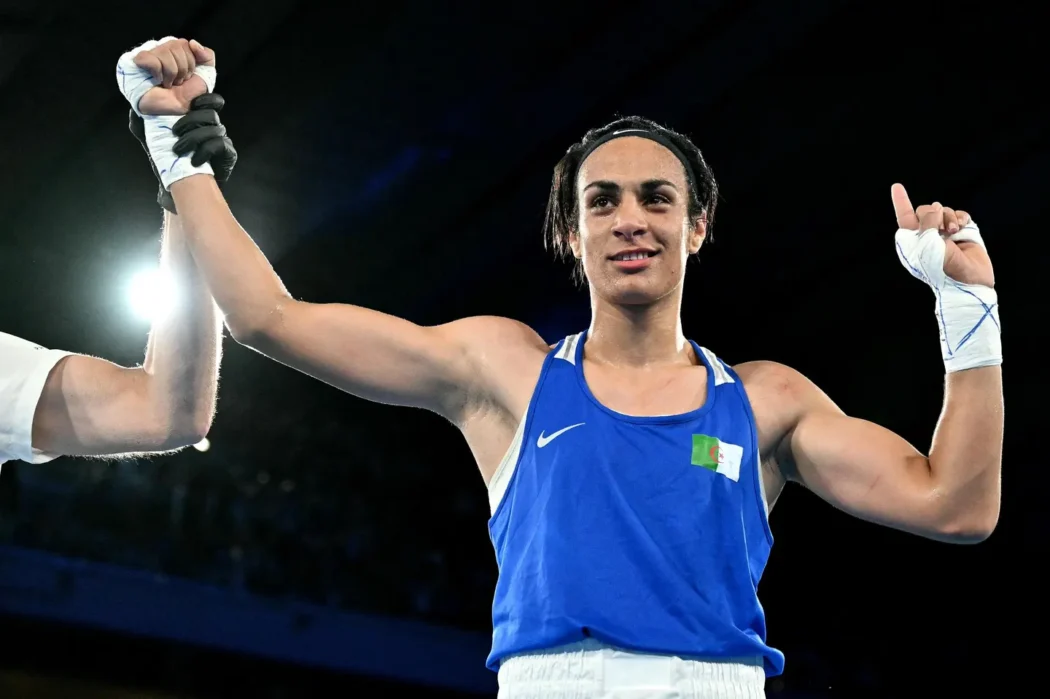From the viral sensation of Turkish shooter Yusuf Dikec to the heartwarming marriage proposal following badminton player Huang Yaqiong’s gold medal, the 2024 Paris Olympics delivered on all fronts. However, despite these amazing stories, this year’s Olympic spotlight has remained controversial.
Following Algerian boxer Imane Khelif’s victory over Italian Angela Carini in the round of 16, Carini, teary-eyed, claimed in an interview that she had “never felt a punch like this.” Carini quit just 46 seconds into the boxing match.
Khelif had previously been disqualified from the World Boxing Championship organized by the International Boxing Association (IBA) for failing an unspecified gender test. After Carini’s comments, social media exploded with accusations against Khelif. Influential X users like Elon Musk and JK Rowling posted to express their belief that Khelif was actually a man, using the sport as an excuse to be physically violent towards women.
However, all these accusations against Khelif are based on the cloudy circumstances surrounding her failed gender test. The IBA has been under heavy scrutiny for corruption; in 2019, the International Olympic Committee (IOC) suspended its recognition of the organization. In 2023, the IOC permanently stripped its recognition of the IBA after it failed to implement reforms, coupled with accusations that its President, Umar Kremlev, was serving Russian interests including Russian state-owned energy corporation Gazprom as its largest sponsor. According to US officials, Kremlev also had ties to President Vladimir Putin and Russian organized crime. With the war in Ukraine, Russian athletes were banned by the IOC from competing under the Russian flag during the 2024 Paris Olympics. IOC President Thomas Bach claimed, “What we have seen from the Russian side and in particular from the (IBA), [is that] they have undertaken already way before these Games with a defamation campaign against France, against the Games, against the IOC.”
Furthermore, the details of the failed gender test have not been released and remain unproven. The test was also conducted suddenly and arbitrarily, disqualifying Khelif from the World Championships “without any due process.”
The boxing eligibility rules on gender in Paris are based on the athlete’s passpower. An athlete will compete in the gender group that is assigned in their passport. With this criteria, Khelif certainly fits with the regulations to compete in women’s boxing at the Olympics. Khelif is someone who was born a woman, raised as a woman, has a passport under a woman, and has competed as a woman for many years. In fact, Khelif had already competed without controversy three years prior in Tokyo.
So why has Khelif been under attack?
Italian Prime Minister Giorgia Meloni stated, “I think that athletes who have male genetic characteristics should not be admitted to women’s competitions … from my point of view it was not an even contest.” Other online users have pointed to Khelif’s strong jawline and torso as proof of Khelif being a man because she exhibits characteristics typically associated with the masculine physique.
It is clear that despite the overwhelming proof of Khelif being a woman, she doesn’t conform to the narrow European definition of womanhood. As a result, Khelif, and other women of color, are often labeled as masculine, and therefore dangerous. Historically, these portrayals have been linked to the exploitation of women during slavery and colonization. This move is used to further perpetuate the idea that being a woman is an inherent characteristic of whiteness, and that white women have to be protected against this threat.
Prior to their quarterfinal match, Hungarian Luca Anna Hamori posted an AI-generated image of herself and Khelif, depicting a petite white woman standing in the ring against a towering, muscular monster. Not only does this image depict Hamori as a damsel in distress, but perpetuates images of Khelif as a monster. She isn’t just stripped of her femininity, but is also stripped of her humanity.
This representation of women of color is nothing new in sports. Tennis superstar Serena Williams has similarly been likened to a man. Just like Khelif, her muscular physique doesn’t fit into the stereotypical European idea of what a woman should be with a high-ranking tennis official referring to her and her sister Venus as being the “Williams brothers.”
These cases have highlighted the underlying racism that is rampant throughout women’s sports. It is deeply ironic how people like JK Rowling attack Khelif on the basis of protecting women in sports by attacking a woman who should be celebrated for her achievements in boxing. ‘Fairness’ in women’s sport has become a battleground for people to participate in politically motivated culture wars. It has become an arena to perpetuate racism under the guise of equality. While other legitimate complex issues need to be addressed as our understanding of sex and gender changes, Khelif does not fall under this case. She has fallen victim to a political agenda that is completely unacceptable for a stage as big as the Olympics.
Despite all this negativity and abuse, Khelif’s Olympic journey ended in a well-deserved gold medal. Contrary to her past opponents, it was very heartwarming to see the gold medal bout end with a warm, smiling embrace from Khelif’s opponent, Chinese boxer Yang Liu.








